Vol. 2, Issue 2, February 26, 2021


Letter from the Editor
LOVE
By Wei Ming Dariotis, Faculty Director, CEETL; Professor, Asian American Studies Department; Affiliate faculty Educational leadership Doctoral Program
February is when we recognize Black History Month, the Japanese American Day of Remembrance and Valentine’s Day. Thus, our theme for this February 2021 issue of CEETL Circles is “radical love” (Cornel West, bell hooks, David Kim, George Lipsitz and others).
Radical Love for Our UNIversity CommUNITY
There may be anger in radical love, because anger is a reasonable response to racism (Audre Lorde). And the opposite of love is not anger; the opposite of love is fear. And the fear is of not being loved. How does this help us confront our racism?
We are seeing anti-Asian violence around COVID-19 erupting in the Bay Area, and learning that people from the Bay Area participated in the Capitol insurrection on Jan 6. We may think, “not here, not us,” but the many messages I personally receive from students, faculty and staff about the racism they experience daily, show that this fear is here, now — and we hold tight to that fear of not being loved.
- We hold that fear when we say we are doing well as a campus compared to other places.
- We hold that fear when we mention that BIPOC and women faculty are facing barriers to becoming full professors, but then shrug our shoulders about removing those barriers.
- We hold that fear when we do not take the time to put anti-racism first in our program learning outcomes.
- We hold that fear when we do not choose to let anti-racism help us restructure our curriculum, redesign our teaching or guide our hiring practices.
In this love letter to our commUNITY, I ask that you let that fear go now, not later. Justice — “what love looks like in public” — has been deferred too long. As bell hooks writes, “There can be no love without justice.” And there can be no justice without love, which means making a daily commitment to help those we love be the best versions of themselves they can be.
To do this systemically, we need a way to report racism that is at least as robust as our mandated reporting structure for Title IX violations and sexual harassment. San Diego State University has a reporting system.
A part-time ombudsperson does not suffice. We need anti-racism allyship development (become a SAFE Zone Ally), and we need processes of resolution and reparations that do not funnel us into grievances. (*** As we were going to press, the Division of Equity & Comunity Inclusion announced the SF State Bias Incident Education Team (BIET) and reporting process; a system of reparations must still be developed. ***)
First, we need to address specific questions (these are mine — I invite you to consider yours):
- As an Asian American woman, I want to know why Asian American women are less frequently promoted within departments and are under represented in formal leadership roles on this campus. What can we do to change this?
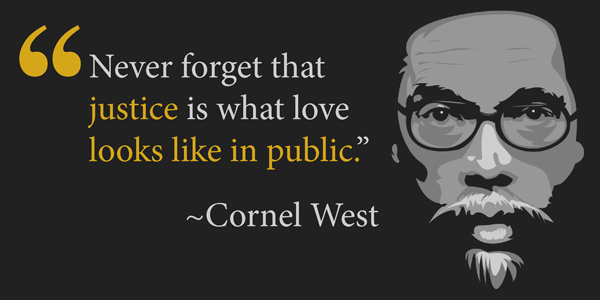
- Why do Latinas have a 1:102 faculty to student ratio when the ratio for white women is 1:7?
- Is anyone counting the Black faculty in each college and asking what they can do to improve that number?
For related questions asked during the Faculty Retreat, look here.
We need to engage in a process of Community Reparations through Truth and Reconciliation throughout the campus, in each college, in each department school or unit and in each office between faculty, students and staff. We need to search our hearts for hard truths, and reach out to make apologies and commit to making changes. We need to be searching for alliances — or better yet, kinships.
As I tell my daughter every day, love isn’t just about hugs, smiles and good feelings; it is a daily commitment to support the one you love to be the best version of themselves that they can be (bell hooks). Just as a child will not thrive if all they are given is clothing, housing, food and an education — but no love — so too will our commUNITY fail if we do not invest it with our love: our daily commitment to make SF State the best version of a university with a mission of social justice through education.

Taste of the PIE: Faculty Highlights
Pedagogies for Inclusive Excellence
About Educational Debt
1. What do you think the term "educational debt" means?
2. What do you think educational debt means in relationship to your field?
3. How might your discipline and department pay back educational debt?
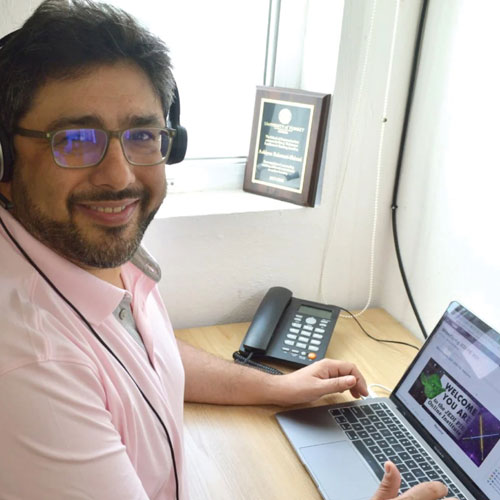
Ashiyan Ian Rahmani
Lecturer Faculty
Communications Studies
I want to say educational debt might have two meanings. One — actual financial debt that is taken on during the course of one's studies. Two — the feeling of having to pay back for, or emotional indebtedness, for those that gave you opportunities, by promoting the values, ideas and norms of the field you are in.
In communications studies, and particularly communications and international development, there is still a tendency of promoting the neo-colonial development discourses, where researcher ‘A’ conducts a study that explores the way that communications and media are used in a so-called 'developing' country. That's not to say that international research is not valid, but let's ask the question — how many times have you seen a researcher from the global south do research on a high-income country to promote 'development' in that country? There is a very direct power discourse that promotes a certain set of values on the subject of study. The debt part then comes from the 'saviorism' embedded in the research that then expects some kind of indebtedness for engaging in the 'development' enterprise, oftentimes to the detriment of local values and rewarding the interests of the ‘savior.’
Paying back the educational debt, in the second option, might look like ensuring that more diverse scholarship is included in texts and content, as well as faculty diversity, so that students are more able to promote ideas, values and norms that are not encumbered by traditional, and often-times biased norms.
An example here might help — the historical framework of the white male anthropologist (maybe not so historical, considering Indiana Jones — a fictional historian, only came out within the last 20-30 years), doing research on so-called 'primitive' cultures. Rather than burden students with this paternalistic and colonial framework of research norms, that may create replicated behavior, ensure research includes decolonized methods and decolonized research perspectives, that generate less archaic and more scientifically inclusive and thus beneficial knowledge frameworks.

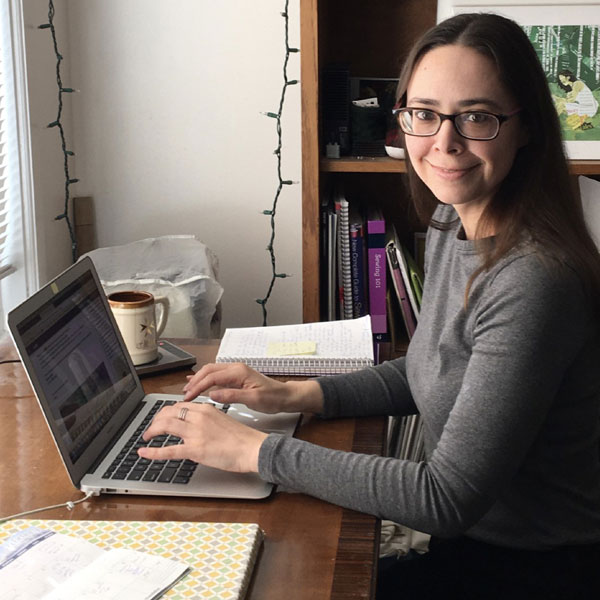
Kristin Agius
Lecturer Faculty
English Language and Literature
I haven’t heard of “educational debt” before, so I’ll admit I read the next resource on this module to help me here. This definition from the reading stood out: “the term 'education debt' describes the opportunities and resources held back from students of color over the decades.” This debt here is moral and socio-political but can also be measured in real dollars and cents by calculating the amount of funding the government would have spent if there weren’t shortfalls or mis-allocations. So, my sense is that this is about how poorer areas and schools that serve people of color are systematically underfunded and that this is the “educational debt” we owe.
In relationship to my field of composition, I think this could mean that students are coming into college classes having had less experience writing, and using technology to write, than their more well-off peers. To pay back the debt my department can create courses that give more time and compassion to these students. Contract grading could be implemented department wide to reward student’s work rather than assessing them on skills they may not have had the chance to practice or learn, which is what traditional grading of essays tends to do.
We can make sure that we focus our instruction and feedback on students' critical thinking skills and not just grammar or language issues (I've heard of studies that show that the kind of feedback comp teachers give students who write in non-standard ways is very different from how we give feedback to students who do write in standard ways). We need to restructure or continue to shape our courses so that students aren’t set up to fail our courses and have to retake them, possibly needing to leave the University to pass a first year writing course elsewhere, which costs time and money.
I’m new to this concept, so I look forward to learning more about it.

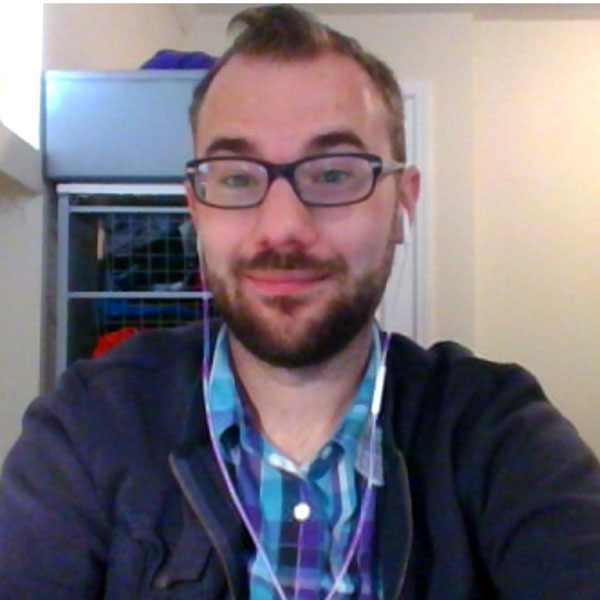
Matthew Heid
Graduate Teaching Associate
Mathematics
When I think of the term "educational debt," I think about teaching and education as service. As a teacher, I am doing more than teaching content and evaluating student learning. I am serving the students in my class. Thinking on a larger scale, the CSU system is serving the student body on their campuses, and the state of California is providing service to all students in K-12.
Not everybody has been served equally by our educational system. If certain groups of people are receiving lower quality of service, due to systemic issues like lower funding, implicit biases of teachers, systems of tracking or other reasons, there is a debt present. The longer this goes on, the more "educational debt" that is accrued.
Thinking from the lens of educational debt, it is not enough to just fix unjust systems in education. It is also important to think about how to pay back this debt to the people who have been impacted by years of lower quality of service.

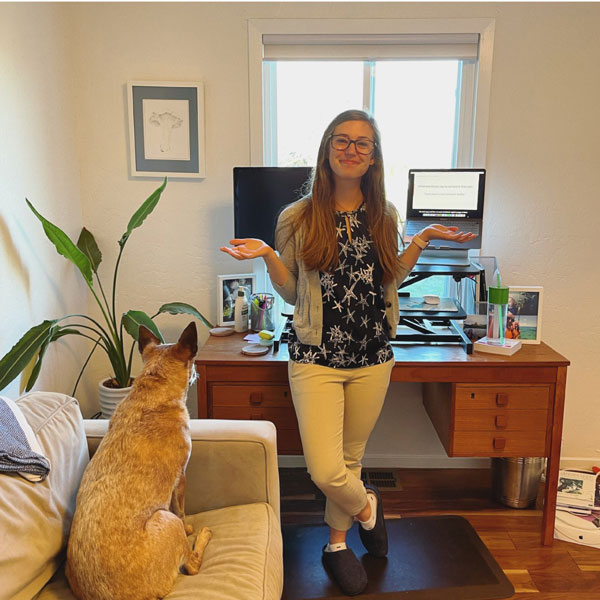
Mallory Rice
Postdoctoral Researcher
Biology
In regards to my field of biology, there are very obvious and very unfortunate educational debts for students of color. Students of color often don't see themselves reflected in the field of biology because it is predominately white men and women, and many biologists have stolen the work of scientists of color who then don't get credit for their contributions.
I'll also add that a lot of research that has human implications (like public health or genetics) is primarily done with white people in mind, which excludes the implications for our communities of color. And a lot of students of color are systematically removed because higher education was designed for and by white people.
In order to pay back this educational debt, myself and other educators in biology can prioritize uplifting and amplifying the voices of students of color to ensure they have equitable access to resources and opportunities to succeed in biology. We can start by making it clear that we value our students of color and that their perspectives and identities are assets in biology. We can also disaggregate grades by student identities to see how we as educators may be either closing or adding to equity gaps in higher education. We can intentionally integrate the voices of scientists of color into our courses and make it clear where in history we have silenced those voices and how we can correct this moving forward.

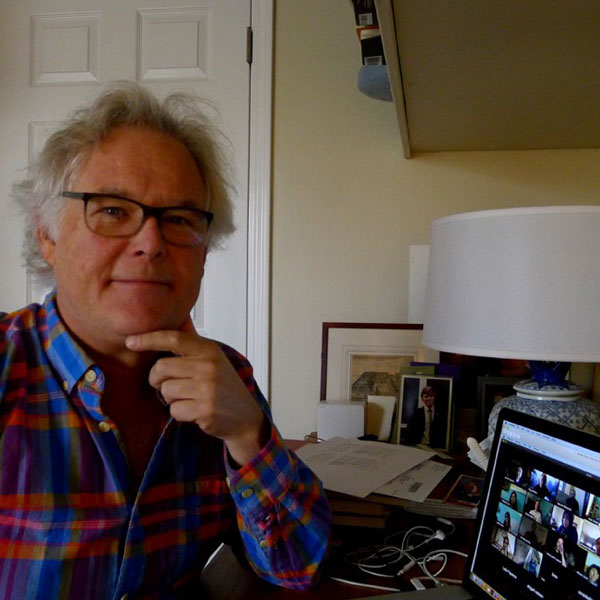
Doug Bailey
Professor
Anthropology
Educational debt is the way that the lack of resources and systemic racism (and sexism?) have harmed students of color and those of other marginalized and discriminated against communities. It is not just an economic factor, but involves morals and ethics of education and access to resources (educational and other) in society at large. In the fields of archaeology and anthropology, educational debt has kept students of color (and many other minorities) from entering and (especially) succeeding to careers in these two fields.
Anthropology and archaeology are not mainstream middle or high school subjects (except in the wealthiest private schools). Add to this the elevated mainstream cultural positions occupied in contemporary societies by the traditional study of the past (archaeology) and of the "exotic" present (anthropology) and the result is a set of elite subjects.
Over the past 20 years, archaeology and anthropology have made significant progress to address this problem, though these efforts, for the most part, have been at the professional and academic levels. The real heavy-lifting needs to be done in the everyday, week-in-week-out practice of education and in addressing systemic racism in society at large.
Paying back the debt? I am not sure that I have an easy answer.

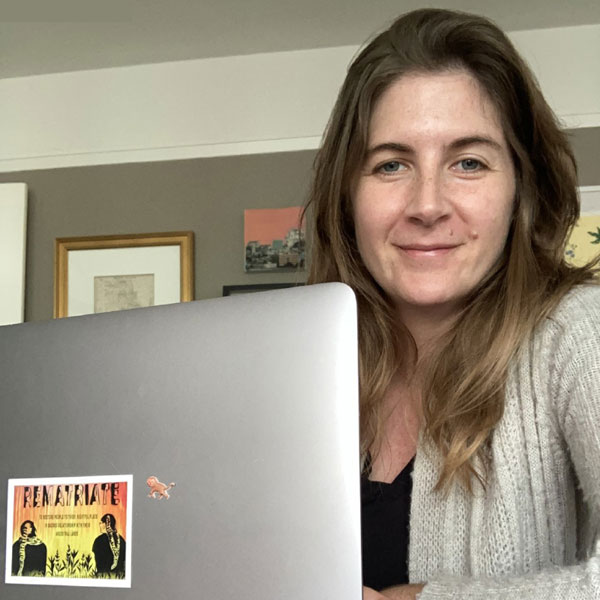
Mikayla Coble
Lecturer Faculty
Special Education - Graduate College of Education
This is my first time hearing the term educational debt. I wanted to write this prediction truthfully so I resisted the urge to read other posts or engage with content that comes later in the module.
One guess — that people who have benefited from privilege in their own educational opportunities owe an education debt to those who have been denied those same opportunities?
If so, my field has a lot of educational debt to pay back, especially to BIPOC teachers. Early childhood education is a field dominated by white folks, especially white women. In my opinion, there is a lot of gatekeeping in terms of requirements for permits, licenses, minimum degree requirements, etc. Teacher training programs require so much financial and time investment, and often entry-level jobs offer barely a living wage. Teachers are often required to pay for multiple background checks and make time for professional development with little to no financial incentive. We need to remove these barriers to create pathways to careers and job opportunities that motivate teachers from diverse backgrounds to enter and stay in the field.
.....Hopefully this has something to do with the topic at hand!

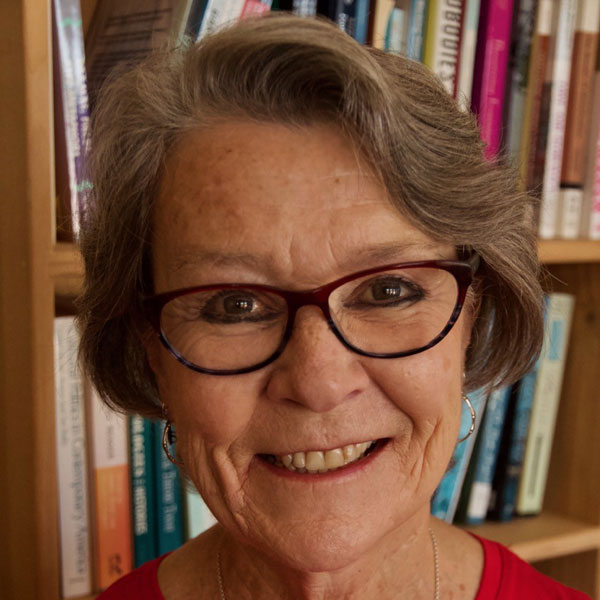
Sheila R. Tully
Lecturer Faculty
Anthropology and Women and Gender Studies
I think about educational debt in a broad sense. It means who has access to educational opportunities and resources and who does not. But it also raises the questions of which opportunities and resources are valued, which are not and why. I am reminded of the urban renewal projects of the 1950s and 1960s. Where a politician may see blight, (or as students sometimes say "a sketchy neighborhood") residents may see a resilient community.
Too often it seems that educational debt really means mentoring, recruiting and teaching students to accommodate and assimilate in order to achieve success in the white university classroom. This process may also mean denigrating and dismissing students' families, communities, cultures, language, etc., and can result in extreme suffering and alienation. Educational debt also refers to all of the ways that academics exploit and, yes, appropriate the work of other academics and students who have less power.
In feminist anthropology and WGS there are many ongoing conversations about ways to conduct research that is more useful to the folks with whom we work, how to create more horizontal, participatory research relationships, use privilege in ways that confront power structures and work on projects here and transnationally that advance social justice in the broadest sense of the word.
If this pandemic ever ends, I would like to see a radically different university that is not built on neoliberal, corporate capitalism. I would like to see ANTH and WGS advocate and invest in inclusive models of teaching and learning that challenge the classroom hierarchies based on white, elite, male supremacy. I would like to continue, then finally win the fight for free public education: Early Childhood > PhD.

Stop AAPI Hate
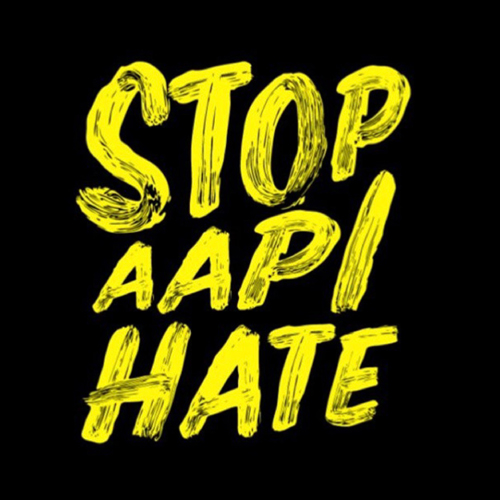
“In response to the alarming escalation in xenophobia and bigotry resulting from the COVID-19 pandemic, the Asian Pacific Planning and Policy Council (A3PCON), Chinese for Affirmative Action (CAA), and the Asian American Studies Department of San Francisco State University launched the Stop AAPI Hate reporting center on March 19, 2020. The center tracks and responds to incidents of hate, violence, harassment, discrimination, shunning, and child bullying against Asian Americans and Pacific Islanders in the United States.” -- Stop AAPI Hate
According to Stop AAPI Hate, between its launch in mid-March and the end of December last year, it received over 2,808 “firsthand accounts of anti-Asian hate from 47 states and the District of Columbia.”
In that same time span, Stop AAPI Hate received 126 “accounts of anti-Asian hate involving Asian Americans over 60 years old.”

Partners in Teaching
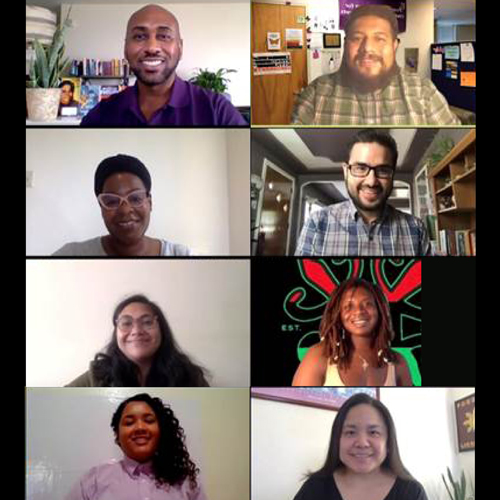
The Division of Equity & Community Inclusion
Co-Curricular Partners in Student and Campus Success: Equity & Community Inclusion
By Fred Smith, Assistant Vice President, Division of Equity & Community Inclusion
At SF State, the Division of Equity & Community Inclusion is focused on addressing campus climate issues for SF State students, staff, faculty, administrators and guests. We do this work — to help people feel like they matter, belong and included on campus — in many ways.
One, our resource centers and student life units provide a home away from home for the campus community. Here, people don’t have to explain who they are, or their backgrounds and life experiences. Our units include: Asian American and Pacific Islander Student Services; Black Unity Center; Dream Resource Center; Interfaith Programs; Latinx Student Services; and LGBTQ+ Student Life.
Two, in collaboration with our campus partners, we provide educational programming and events, training opportunities and consultations on issues. Collaborating with faculty on events — in and out of the class — is important to our team and to students’ experiences at SF State. An example of this is the January 2021 Faculty Retreat, which focused on creating an anti-racist University. Here, academic and co-curricular leaders engaged in rigorous conversation about how we can challenge and support each other in our anti-racism work across campus.
Third, we lead or co-lead numerous work groups, task forces and committees charged with addressing campus climate experiences for a number of campus populations and groups. With students at the heart of our work, we lead courageous conversations and develop action items that lead toward incremental campus climate improvements. We would be happy to meet and present to your area the campus climate work we’re leading.
Compassion and consciousness are our community values. We are all responsible for addressing and improving campus climate. If you would like to schedule a classroom presentation, training opportunity or discuss a program collaboration possibility with our team, please email Frederick Smith, Assistant Vice President, Equity & Community Inclusion.

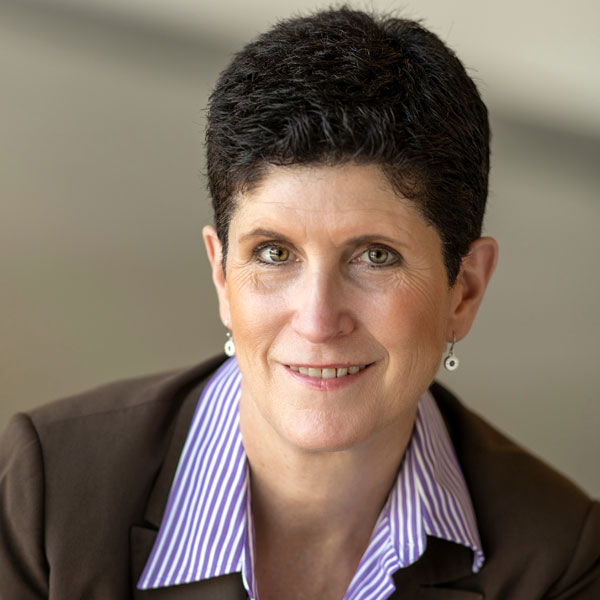
Office of The President
By President Lynn Mahoney
Feel Good Friday Event Series
While the important work of San Francisco State has continued over the past year, I think we can all admit very little is the same as it was before. With the overwhelming majority of students, faculty and staff working and learning remotely, it can be difficult to find a common space to talk about everything that’s going on in our lives. In many ways, just when we need it most, the more easy-going, social aspect of work has been taken from us — no running into each other on the sidewalk; no chatting while in line to buy a coffee. I hope Feel Good Fridays can provide us with at least a small opportunity to replace those experiences, get to know one another better and find out what’s happening outside of our work Zoom meetings.
----------------
Students, faculty, staff and administrators are invited to new Feel Good Fridays hosted by President Mahoney. These virtual events provide a moment for the campus community to meet with the president in an informal setting for conversations that provide a space to get together while most of us continue to work and learn apart.
Feel Good Fridays will be held every Friday from 10-11 a.m. from Feb. 12 through March 12. Space for each session is limited. To register, email president@sfsu.edu. An email confirmation will be sent once the date is confirmed. If demand exceeds available Feel Good Fridays, more will be scheduled.
Questions to expect:
- How are you staying connected with the campus and your colleagues?
- How did someone lift you up this week and what have you done to lift someone up?
- What are some new hobbies you’ve taken up to de-stress?
- What will you do to reinvigorate yourself this week?
- What are you doing for self-care?
- What makes you smile?

Academic Senate
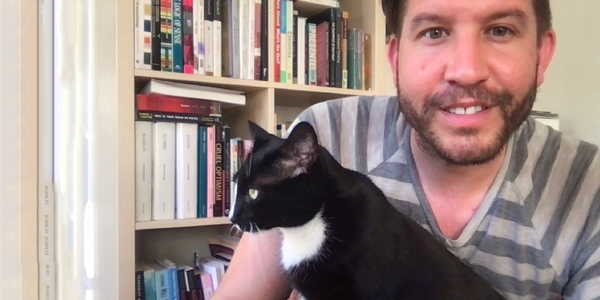
News & Updates
By Teddy Albiniak, Senate Chair, Academic Senate; Director of Forensics, Lecturer Faculty, Communication Studies
Big NEWS!
Governor Newsom and legislative leaders announced a new Immediate Action Agreement to offer much-needed economic relief to California. Thanks to the advocacy of the ASCSU, the CSSA, the CO, labor unions and individual letter-writing campaigns, the agreement fully restores the budget cuts to the CSU enacted in 2020. While the bill still needs to pass, it is unexpected and welcoming news.
The Academic Senate welcomed President Lynn Mahoney, Provost Jennifer Summit and over 175 attendees to our open forum on February 19 to discuss the news and take Q&A from the campus on budget, COVID planning and other important topics. If you missed it, you can watch the zoom recording.

Plenary NEWS
February 16: Recommendation from APC: Proposed Revision to #S20-275 Academic Probation and Disqualification passed in second reading. Changes include: defining first-year first-time “freshmen” to distinguish from first-year transfer students. Clarifies where students go for probation advising including appeals. Clarifies role of graduate coordinator in graduate student probation advising.
Four recommendations were approved by CRAC in second reading:
- Revision of the Graduate Certificate in Business Principles
- New Graduate Certificate in Data Science for Biology & Chemistry
- New Bachelor of Arts in Bilingual Spanish Journalism
- New Bachelor of Arts in Race, Ethnicity, and Health
If you missed it, you can watch the zoom recording
Request For Feedback
The following items will be back in second reading in our next plenary on March 2
- CRAC: New Certificate in Climate Change Causes, Impacts and Solutions and Graduate Certificate in Enterprise Cybersecurity
- SAC: Resolution on Prioritizing in the Recruitment, Hiring and Retention of Black, Indigenous, People of Color (BIPOC) Staff, Faculty and Administrators
- EXCOM: Resolution Affirming Shared Governance and Budget Transparency in Times of Crisis. If you have specific concerns, objections or recommendations about the current budget conversation (including Academic Affairs Directive Memo), consider engaging this resolution or sending suggestions about language to include in this resolution!

Links and Announcements
- ASCSU senators Yee-Melichar, Collins and Gerber presentation on ASCSU resolutions.
- AVP Roderick for his reminder about 2 Factor Authentication and IT services
- Director Boyce for the update on the National Health Assessment Survey
- NCHA
- Public comment on a proposed new art piece “Lucy Selfie” will be on February 25. Access materials and send in your feedback.
- Academic Senate elections are coming up! Open nomination process will begin March 8 and run through March 19!
- Access the Academic Masterplan Framework and other documents
Just as a reminder, anyone can access Senate material and recordings in our outward-facing Senate Box.

Campus Resources
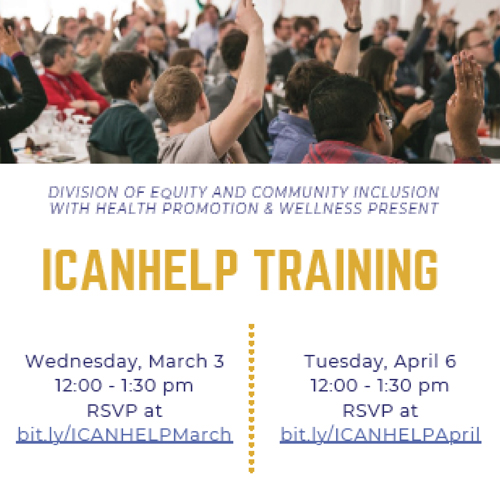
Well Being Highlight
ICANHELP Faculty & Staff Training
Health Promotion & Wellness (HPW) & the Office of Diversity, Student Equity and Interfaith programs (DECI)
ICANHELP Training ($30 Amazon Gift Card)
- Wednesday, March 3 or Tuesday, April 6
- 12:00pm – 1:30pm PST
- RSVP for March 3
- RSVP for April 6
In collaboration with DECI: Office of Diversity, Student Equity and Interfaith Programs
The I CAN HELP Training seeks to prepare the SF State community to support early detection, health literacy, suicide prevention and understand other factors that impact students’ wellness. Attendees will better understand why promoting positive health is vital to support student success. Develop skills to intervene when a student is in distress with Active Minds’ VAR (validate, appreciate, refer) strategy. Learn about various wellness, academic and basic needs resources on campus. Space is limited to 30 participants per session, must RSVP. Those who attend, and complete a survey will be awarded a $30.00 Amazon gift card.
We welcome persons with disabilities and will provide reasonable accommodations upon request. Please contact Jul Custodio at custodio@sfsu.edu as soon as possible so your request may be reviewed.
Download flyer:
To view PDF files, you may download Adobe Reader.
